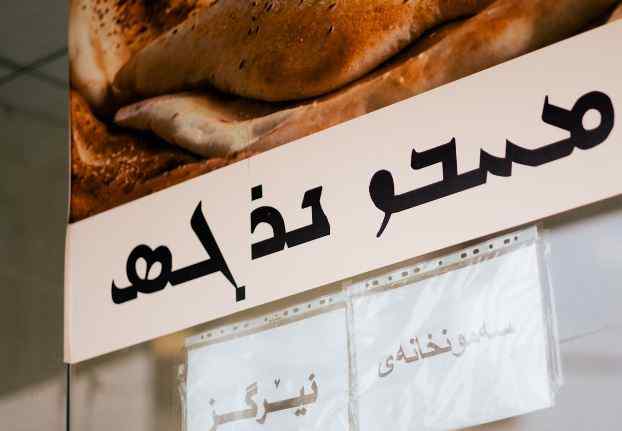The Aramaic language, one of the oldest continuously spoken and written languages in the world, has a rich history deeply intertwined with religious texts, particularly those of Judaism and Christianity.
Aramaic was the lingua franca of much of the Near East from the 6th century BCE until it was gradually replaced by Arabic following the Islamic conquests.
As a language spoken by Jesus Christ and widely used in the Middle East, Aramaic holds significant religious and cultural importance. One of the most frequently asked questions about this ancient language is how to say “God” in Aramaic.
READ ALSO: What Mountain Was Jesus Crucified On
Contents
The Word for “God” in Aramaic: “Elaha” and “Alaha”
In Aramaic, “God” is commonly referred to as “Elaha” (ܐܠܗܐ) in the dialect of Biblical Aramaic, or “Alaha” (ܐܠܗܐ) in the Syriac dialect, which is still spoken by some Assyrian Christians today.
Both terms are derived from the root word “El,” which is also the basis for the Hebrew word “Elohim” (אֱלֹהִים), commonly used in the Hebrew Bible.
Historical Context and Scriptural References
Aramaic is part of the Semitic language family, closely related to Hebrew and Arabic. The word “Elaha” is used throughout the Aramaic portions of the Old Testament, particularly in the books of Daniel and Ezra, which were written in both Hebrew and Aramaic. For example:
Daniel 2:28 (Aramaic): “But there is a God (Elaha) in heaven that revealeth secrets, and maketh known to the king Nebuchadnezzar what shall be in the latter days.”
This usage emphasizes the concept of a singular, omnipotent deity, much like the Hebrew “Elohim” and the Arabic “Allah.” The term “Elaha” or “Alaha” thus signifies the same monotheistic God worshipped in Judaism, Christianity, and Islam.
Jesus and Aramaic
Jesus Christ, a central figure in Christianity, spoke Aramaic as his primary language. The Aramaic word “Alaha” was likely used by Jesus when referring to God.
This is evident in several key phrases recorded in the New Testament, where Jesus speaks in Aramaic. One of the most famous instances is his cry from the cross:
Mark 15:34: “And at the ninth hour, Jesus cried with a loud voice, saying, ‘Eloi, Eloi, lama sabachthani?’ which is translated, ‘My God, my God, why have you forsaken me?'”
Here, “Eloi” is the Aramaic form of “My God,” showing the direct link between the words used in prayer and worship by Jesus and the word “Alaha” or “Elaha” for God.
READ ALSO: What Does John 3:17 Mean and the Understanding Behind It
Aramaic in Christian Liturgy
In the Syriac Christian tradition, which has preserved much of the Aramaic language, “Alaha” is still used in liturgical contexts.
The Syriac Orthodox Church, the Assyrian Church of the East, and the Maronite Church all use variations of Aramaic in their worship, including the word “Alaha” to refer to God.
- The Lord’s Prayer in Aramaic: “Abun d’bashmaya, nethqadash shmokh” (Our Father in heaven, hallowed be your name). The word “Alaha” would appear later in the prayer, as it addresses God as “Father” in the initial line.
Comparison with Other Semitic Languages
It is interesting to note the similarities between “Elaha” or “Alaha” in Aramaic and the words for God in other Semitic languages.
In Hebrew, “Elohim” is a plural form used to denote majesty, often translated simply as “God.” In Arabic, “Allah” is the word for God, directly related to the Aramaic “Alaha.” These linguistic connections underline the shared theological and cultural heritage of the Semitic peoples.
FAQ
1. What is the Aramaic word for God?
The Aramaic word for God is “Elaha” in Biblical Aramaic and “Alaha” in Syriac Aramaic.
2. Did Jesus use the word “Alaha” or “Elaha” for God?
Yes, Jesus likely used the word “Alaha” when referring to God, as evidenced in the New Testament and the Aramaic phrase “Eloi, Eloi” from the Gospel of Mark.
3. Are “Elaha” and “Alaha” used in modern languages?
Yes, “Alaha” is still used in Syriac Christian liturgy, a tradition that has preserved the Aramaic language.
4. How does the Aramaic word for God compare to other languages?
The Aramaic “Elaha” or “Alaha” is closely related to the Hebrew “Elohim” and the Arabic “Allah,” all of which denote the monotheistic God of Abrahamic faiths.
5. Where is Aramaic still spoken today?
Aramaic is still spoken by small communities in the Middle East, particularly among Assyrian Christians in parts of Iraq, Syria, Turkey, and Iran, as well as by diaspora communities around the world.
READ ALSO: How Tall Was David in the Bible
Conclusion
Understanding how to say “God” in Aramaic, as “Elaha” or “Alaha,” offers insight into the religious and linguistic heritage shared by the Abrahamic faiths.
This word has been central to religious worship and theological discussions for thousands of years, from the time of ancient Israel to the prayers of early Christians and beyond.
Its continued use in Syriac liturgy today is a testament to the enduring legacy of Aramaic as a language of faith and tradition.

